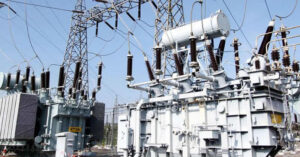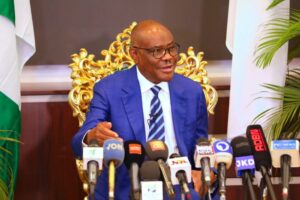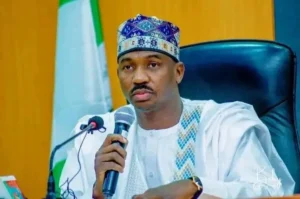The Nigerian Naira has been identified as one of the worst-performing currencies in sub-Saharan Africa, according to the World Bank’s Africa’s Pulse report released in August 2024. Alongside the Ethiopian Birr and the South Sudanese Pound, the Naira has suffered a significant decline this year. The report points out that the Naira has lost approximately 43% of its value, signaling major economic challenges for Nigeria.
Several factors have contributed to the Naira’s sharp depreciation in 2024. One of the main reasons is the increasing demand for US dollars in Nigeria’s parallel market. This surge in demand has been driven by financial institutions, businesses, and even everyday citizens who need access to foreign currency for imports, savings, and other transactions. The Naira has struggled to hold its value as the availability of dollars remains limited.
This shortage of dollars is partly due to the slow inflow of foreign currency into Nigeria. The Central Bank of Nigeria (CBN) has also been slow to release foreign exchange (forex) to currency exchange bureaus, leading to a widening gap between the official exchange rate and the parallel market rate. As a result, the pressure on the Naira has intensified, pushing it to one of its lowest points in years.
By the end of August 2024, the Naira was trading at N1658.97 per US dollar in the parallel market, a significant drop from the N1552.92 rate it recorded just the day before. This sharp fluctuation reflects the ongoing instability of Nigeria’s currency and the challenges facing the Central Bank’s efforts to stabilize the exchange rate.
For months, the Naira has been fluctuating in the foreign exchange market despite interventions by the Central Bank, including its efforts to control the supply of forex. These efforts, however, have not been sufficient to prevent the currency from losing value. The widening gap between official rates and parallel market rates has further complicated the situation for traders, businesses, and consumers who rely on a stable currency.
Adding to Nigeria’s economic challenges is the rising inflation rate. As of September 2024, inflation reached 32.70%, up from 32.15% in August. High inflation is a reflection of the increasing cost of goods and services, driven in part by the depreciating Naira. As the currency weakens, the prices of imported goods rise, making everyday items more expensive for Nigerians.
Inflation in Nigeria has been a persistent problem, affecting businesses, households, and the overall economy. The depreciating Naira, combined with high inflation, has created a difficult economic environment for Nigerians. Wages have struggled to keep pace with rising prices, and businesses have faced higher operating costs, making it harder to maintain profitability.
The Central Bank of Nigeria has made several attempts to stabilize the Naira, but these efforts have been met with limited success. One of the strategies has been to restrict the flow of forex to certain sectors to control the outflow of dollars. However, this has not been enough to counter the high demand for foreign currency, especially in the parallel market where rates are significantly higher than the official exchange rate.
Additionally, the Central Bank’s slow disbursement of forex to currency exchange bureaus has contributed to the currency’s instability. Without enough dollars in circulation, the Naira continues to weaken, and the gap between the official and parallel market rates remains wide. Some experts have called for more significant reforms in Nigeria’s foreign exchange policy to address the underlying causes of the currency’s depreciation.
Despite the economic challenges facing Nigeria, the World Bank has projected some positive growth for the country in the coming years. According to the Africa’s Pulse report, Nigeria’s economy is expected to grow by 3.3% in 2024. This is a slight improvement from previous years, indicating that the country’s economy could still recover despite the currency crisis and inflationary pressures.
Looking ahead, the World Bank expects further growth in 2025 and 2026, with the economy projected to expand by 3.6% in those years. While these growth projections are encouraging, the government will need to address the ongoing challenges with the Naira and inflation to ensure that economic recovery benefits all Nigerians.
The Naira’s depreciation has created significant challenges for Nigeria in 2024, affecting both businesses and consumers. The World Bank’s report underscores the urgency of addressing the country’s forex shortage and stabilizing the currency to prevent further economic decline. Although inflation remains high and the currency remains weak, the projected growth offers hope for the future.
To achieve sustained growth, Nigeria will need to implement reforms in its foreign exchange policies, address inflationary pressures, and work towards a more stable currency. By doing so, the country can improve its economic outlook and provide a more stable environment for both domestic and international investors.







